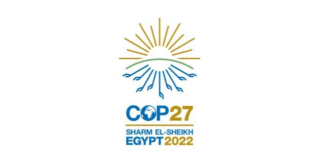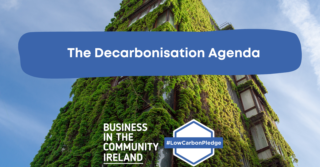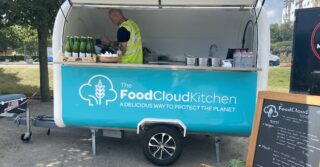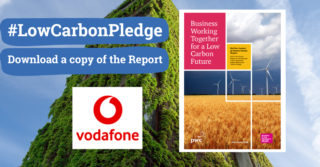How HEINEKEN reduced their carbon emissions
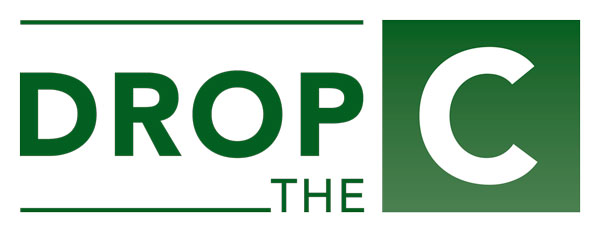 Heineken Ireland Heineken’s global strategy to “Brew a Better World” created a clear mandate for Heineken Ireland to prioritise sustainable business practices. The global strategy, effective since 2010, sets out the company’s global ambition to be a green brewer. The strategy identifies 6 pillars against which all local companies must deliver continual improvement: reducing CO2 emissions; sustainable sourcing; protecting water resources; promoting health and safety; advocating responsible consumption; and growing with communities. Efforts to reduce CO2 are captured within a programme labelled “Drop the C” which aims to reduce energy consumption in production and decrease CO2 associated with distribution and cooling. Globally Heineken have committed to growing its share of renewable thermal energy and electricity to 70% by 2030, with individual emission goals set across production, distribution and cooling to build a renewable energy road map for 2030.
Heineken Ireland Heineken’s global strategy to “Brew a Better World” created a clear mandate for Heineken Ireland to prioritise sustainable business practices. The global strategy, effective since 2010, sets out the company’s global ambition to be a green brewer. The strategy identifies 6 pillars against which all local companies must deliver continual improvement: reducing CO2 emissions; sustainable sourcing; protecting water resources; promoting health and safety; advocating responsible consumption; and growing with communities. Efforts to reduce CO2 are captured within a programme labelled “Drop the C” which aims to reduce energy consumption in production and decrease CO2 associated with distribution and cooling. Globally Heineken have committed to growing its share of renewable thermal energy and electricity to 70% by 2030, with individual emission goals set across production, distribution and cooling to build a renewable energy road map for 2030.
Heineken Ireland has an established governance structure to ensure sustainability is successfully embedded into business operations. All managers operate with the dual mandate to deliver production objectives and targets that are also compatible with the sustainability pillars. Performance against the 6 pillars is monitored on a quarterly basis with employee’s bonus structure also linked to performance against a range of cross sectoral sustainability targets. This helps ensure that it is in employees’ best interest to promote best practice.
Heineken’s global sustainability network combines an online forum with regular workshops which provide Heineken Ireland staff with the opportunity to share and access information on the latest energy efficiency and sustainability practices. “Energy Champions” within the company help disseminate best practice information and knowledge within the Irish site. Whilst Heineken have undertaken a number of emissions reduction efforts, a number of actions are worth noting. To monitor energy use, Heineken utilise a sub-metering system across its site which enables the identification of areas of excessive energy use and the implementation of corrective actions. Whilst the upfront cost of implementation was material it was recognised as being fundamental to the identification of process inefficiencies and was therefore funded through a dedicated on-going financial provision within its operational budget. Cash flow and capital expenditure is always a key consideration for any company contemplating an energy efficiency investment. Heineken Ireland have avoided this challenge when replacing the lighting system across its production line. Urban Volt were engaged to design and install a LED energy efficient lighting system achieving significant energy and cost savings. The added benefit of this business model was the avoidance of any capital outlay on the part of Heineken. The switch to an LED system reduced energy consumption by 400,000 KwH while also delivering an unexpected safety benefit as the LED system meant that previously dark areas of the production line were now extremely well lit, addressing another key Pillar of Health and Safety.
To reduce CO2 emissions associated with product distribution the company has worked with customers to optimise loads and routes, increased the number of loads going directly to customers and increased the volume of self-collections. The company now use high capacity trucks and trailers for primary keg distribution, which increased the loads by 19% and allowed trucks to make fewer trips per year. While Heineken Ireland has flexibility to identify local solutions to help deliver against the global pillars, global strategy also provides direction regarding certain actions. In 2018 Heineken Ireland had zero carbon emissions arising from its long term contract to procure electricity from the Raheen Barr wind farm. Heineken’s decision to procure locally sourced green certified renewable electricity is driven by a global objective of the company’s CEO to see that the company brews with locally sourced green energy where possible. Another global sustainability initiative is the procurement rule stipulating that all purchased Heineken fridges must be ‘green fridges’ and comply with four specific characteristics: use a hydrocarbon refrigerant, be LED illuminated, have an energy management system and energy-efficient fans. Adherence to these rules has resulted in a 45% decrease in the energy required for product cooling.
HEINEKEN Ireland have signed up to the #LowCarbonPledge find out more about the Pledge and download the report to know how the companies that have signed up to the Pledge are progressing.


